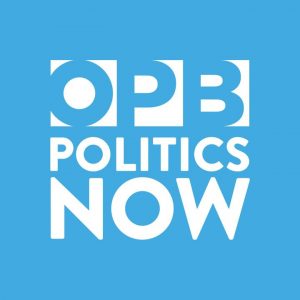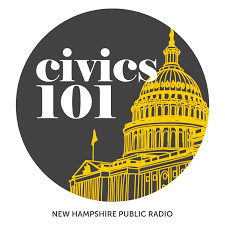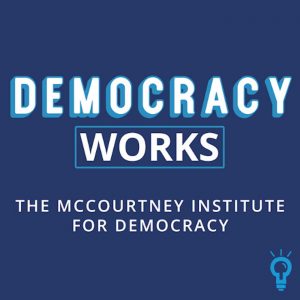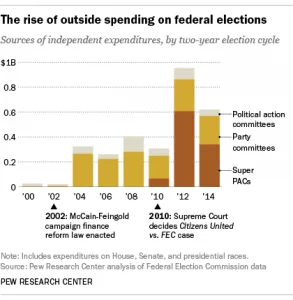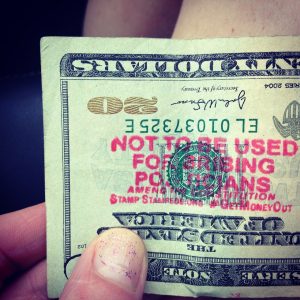
George Washington is known for being the “first” in American history. One of the lesser known “firsts” of his political career is related to campaign finance laws. While campaigning to be elected for public office in Virginia in 1757, George Washington bought just under two hundred dollars worth of punch, beer and hard cider for friends and potential voters prior to an election. The Virginia legislature responded by passing a law prohibiting candidates, or persons on their behalf from giving voters “money, meat, drink, entertainment… any present, gift, reward.. in order to be elected.”
Since that mid-18th century law, the United States and Oregon have a long and complicated history as it relates to the laws that govern the money in and around politics, political campaigns, and elected government officials. Oregon is one of the five states in the U.S. that allow unlimited contributions to candidates and ballot measures. In 2020, voters responded to this fact by approving, by a significant margin, ballot Measure 107, which amended the state’s constitution to authorize the state legislature and local governments to i) enact laws or ordinances limiting campaign contributions and expenditures; ii) require disclosure of contributions and expenditures; and iii) require that political advertisements identify the people or entities that paid for them. Since that ballot measure passed, despite efforts of some legislators, no state legislation has been passed regulating campaign finance or limiting contributions.
Outside of the legislative process, groups have been trying, once again, to use the ballot measure initiative to enact campaign finance reform within Oregon. Working together, members of the League of Women Voters, Portland Forward, and Honest Elections Oregon put forward three ballot measures that would limit how much money individuals, unions, and political action committees could give candidates or political action committees; as well as create a new public funding system for elections, and require all political advertisements to include disclaimers about who paid for them. Those three ballot measures were rejected by the Secretary of State’s office for failing to meet technical requirements. The three groups sought intervention from the Oregon Supreme Court, but were denied, as the state’s highest court said it would not take up a challenge, thus marking an end of campaign finance reform within Oregon until 2023 or 2024.
Campaign finance reform has become a topic of importance for a number of government groups, as public opinion has demonstrated a growing concern of money’s influence in American politics. The national conversation has amplified since 2010, when a landmark U.S. Supreme Court decision, Citizens United v. Federal Election Commission, ruled that limiting “independent political spending” from corporations and other special interest groups violates the first amendment right to free speech.
This week’s Current Events resources examine campaign finance and efforts to reform existing regulations. The resources shared provide information and context about campaign finance, the debate around reform and efforts to modify the laws at both a state and federal level.
Looking for more current events resources? Sign up at our We the Teachers Educator Resource Community page, where you can find all of our Current Events, and learn about our other programs!
Essential Questions, Vocabulary & Extend the Resources:
- What is Campaign Finance Reform?
- Which government entities can regulate campaign financing?
- What are the federal regulations on contributions made to political campaigns?
- What are the current regulations Oregon has regarding contributions made to political campaigns?
- What are the various viewpoints around the current controversy surrounding Oregon’s campaign finance laws?
- In your opinion, what effects do you think campaign contributions have on a political candidate once they take office?
- In your opinion, what, if any, steps should Oregon take to regulate campaign contributions going to Oregon-based political candidates?
Click here for a hardcopy of the Essential Questions & Campaign Finance Reform Vocabulary
Click here for a hardcopy of the Extend the Resources handout with suggested lesson activities and extensions
Videos:
Podcasts:
The fight over campaign finance limits, OPB Politics Now
The Federal Election Commission, Civics 101, NPR
Campaign Finance Reform, The Dive Podcast, Willamette Week, February 11, 2022
The Complicated Relationship Between Campaign Finance And Democracy, Democracy Works, December 10, 2018
Image Resources:
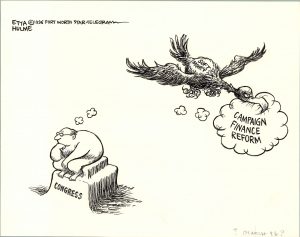
Background Resources:
- History of campaign finance regulation, Ballotpedia
- Reform Money in Politics, Brennan Center for Justice
- Mission and History, Federal Election Commission, United States of America
- Campaign Finance Reform Historical Timeline, Connecticut Network, Victor W. Geraci, PhD
- How Our Campaign Finance System Compares to Other Countries, The American Prospect, April 4, 2014
- German election: Party and campaign financing, DW
Recent Articles:
- Oregon Secretary of State rejects three proposed campaign-finance ballot measures, The Bulletin, February 9, 2022
- Oregon Secretary of State disqualifies three campaign finance ballot measures, KGW8, February 10, 2022
- Rejected campaign finance ideas could have new life in Oregon Senate bill, OPB, February 10, 2022
- Oregon Supreme Court won’t clear way for voters to consider campaign finance limits, Oregon Capital Chronicle, March 18, 2022
- Oregon Supreme Court ruling likely dooms campaign finance limits this year, Jefferson Public Radio, March 18, 2022
- Campaign finance reform advocates ask Oregon Supreme Court for a new hearing, Oregon Capital Chronicle, March 23, 2022
Recent Editorials:
- Editorial: Derailed campaign-finance reform measures need court’s help, The Oregonian, February 13, 2022
- Do We Really Need Campaign Finance Reform?, Time, January 19, 2016
- A Big Week for Campaign Finance Reform, The Briefing, The Brennan Center For Justice, March 29, 2022
Lesson Plans:
- Campaign Cash, iCivics
- Campaign Finance, U.S. Political Conventions & Campaigns, Northeastern University
- From Watergate to Campaign Finance Reform, Retro Report in the Classroom
- Campaign Finance, C3 Teachers
- Dark Money | Lesson Plan: Media Literacy for Elections, PBS Learning Media
Media & News Literacy Lesson Plans:
Media Literacy Resources – Newseum
Resource Library – News Literacy Project
News & Media Literacy Lessons – Common Sense
Media Misinformation, Viral Deception, and “Fake News” – University of Wyoming
Evaluating Sources in a ‘Post-Truth’ World: Ideas for Teaching and Learning About Fake News – New York Times Lessons

